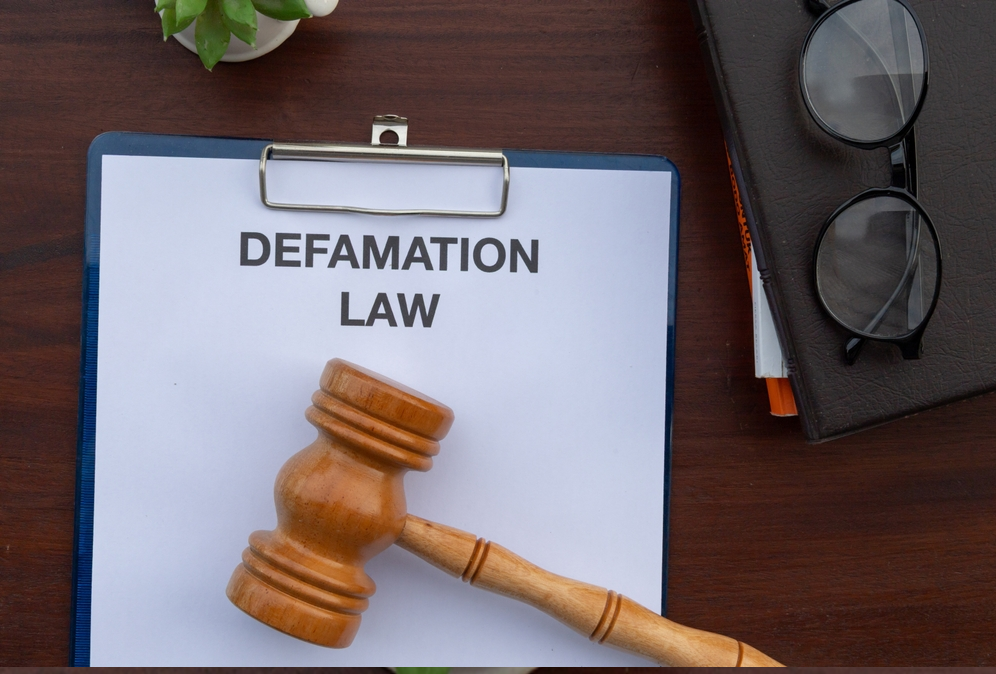Defamation occurs when someone publishes material that damages another person’s reputation. In practical terms, it means making a false statement that causes serious harm. Traditionally, libel referred to written defamation, and slander to spoken words. Under Australian law, both fall under the broader term “defamation.”
If you have been accused, there are 5 things you must know about defamation law. In this blog post, you will learn what qualifies as defamatory, what defences are available, and the strict time limits under Queensland law.
Key Legislation – The Defamation Act 2005 (QLD)
Queensland operates under the Defamation Act 2005 (QLD), which provides the framework for claims, Concerns Notices, offers to make amends, and available defences. This legislation has been harmonised across most Australian states, meaning that Queensland residents follow the same rules as much of the country.
What Counts as “Publication” and Who Can Be Defamed
Publication includes more than newspapers; it extends to social media posts, emails, websites, or even group messages. Not only individuals but also small businesses with fewer than 10 employees can sue for defamation. Larger corporations cannot, unless they are not-for-profit or meet other exceptions.
When You Receive a Concern Notice
What is a Concerns Notice?
A Concerns Notice is the first formal step in a defamation claim. It notifies you that someone believes you have defamed them and gives you the chance to resolve the matter before court action begins.
What It Must Contain
A valid Concerns Notice identifies:
- The exact statements that are considered defamatory.
- Where and when they were published.
- Why are they alleged to have caused harm?
- The remedy the complainant is seeking (such as an apology or compensation).
Timeframes – How Long You Have to Respond
You have 28 days to respond. Ignoring a Concerns Notice can escalate the matter quickly and increase the risk of costly litigation.
Options For Responding
Offer to Make Amends
The Defamation Act allows you to make an offer to make amends. This includes correcting the statement, publishing an apology, or paying compensation. If accepted, the matter will be concluded.
Apology, Retraction, Correction
A carefully worded apology or retraction can prevent litigation. It shows good faith and may reduce damages if the case goes further.
Negotiation / Settlement vs. Defending the Claim
Many disputes can be settled outside court. Settlement negotiations can be less costly, quicker, and less stressful. If you believe that you have a strong defence, however, it may be worth contesting the claim.
Defences Available If You Are Accused
Truth / Justification
If the statement is substantially true, this is a complete defence.
Honest Opinion / Fair Comment
If you expressed an opinion rather than a factual claim, and it was based on proper material, you may rely on this defence.
Qualified Privilege and Absolute Privilege
Some contexts, like parliamentary or court proceedings, attract absolute privilege. Qualified privilege applies in circumstances where communication was reasonable and in the public interest.
Public Interest Defence
Reforms introduced the public interest defence, protecting publishers who reasonably believe the publication was in the public interest.
Other Defences
Other possibilities include contextual truth (where additional true statements lessen the defamatory impact) and triviality (though this is rarely used).
Practical Steps to Take Immediately
Preserve Evidence
Keep copies of what was said or posted, along with timestamps.
Cease Publication
Remove or restrict access to the material where possible.
Seek Legal Advice Early
If you need a defamation lawyer in Brisbane, contact a local professional. Defamation law is complex, and early advice can save significant time and cost.
Drafting a Response or Reply
Your lawyer can help prepare a formal reply that protects your rights while addressing the complaint.
Resolving Without Going to Court
Mediation and Alternative Dispute Resolution
Many cases are resolved through private negotiation or mediation, saving time and money.
Formal Offers to Settle and Make Amends
A written settlement offer may stop litigation and reduce risk.
Risks and Benefits of Settling vs. Litigation
Settlement gives certainty. Litigation may be necessary if the claim is weak or the settlement terms are unreasonable.
What Happens If the Case Goes to Court
Legal Process / Pleadings
If unresolved, the matter proceeds to court filings, pleadings, and evidence exchange.
Burden of Proof and Evidence Requirements
The plaintiff must prove publication, identification, and defamatory meaning. The defendant must prove their defence.
Possible Remedies
Courts can award damages, issue injunctions to prevent publication, and order costs.
Time Limits and Limitation Periods in Queensland
General Time Limit
Defamation actions must be filed in Court within 12 months of the publication.
Extensions / Exceptions
In limited cases, the court may extend this period to 3 years.
Why Acting Quickly is Essential
Delay can mean losing the right to defend or claim effectively.
How a Brisbane Defamation Lawyer Can Help
Case Evaluation and Strategy Development
Lawyers can assess whether the claim has merit and outline your options.
Representation in Negotiations / Offers to Amend
A lawyer can negotiate on your behalf to achieve the best outcome.
Court Representation if Needed
If the case escalates, having an experienced advocate is crucial.
Local Experience and Understanding of QLD Law
Choosing a lawyer with strong knowledge of Brisbane courts and Queensland defamation law is vital.
Conclusion
Being accused of defamation in Brisbane is a serious matter that demands a swift and strategic response. As outlined, the process is governed by strict timeframes under the Defamation Act 2005 (QLD), and ignoring a Concerns Notice can swiftly lead to costly litigation. The key to navigating this challenge lies in understanding your options, whether that involves pursuing a defence like truth or honest opinion, making a negotiated offer to make amends, or considering a settlement.
The most critical step you can take is to seek immediate, professional legal advice. An experienced Brisbane defamation lawyer can evaluate the claim’s merits, guide you through the complexities of Queensland law, and help you develop a strategy to protect your interests.
If you have received a Concerns Notice or are facing a defamation claim, do not delay. Contact Cochrane Leahy Litigation in Brisbane at +61 7 3188 5724 to discuss your situation and your best path forward.

